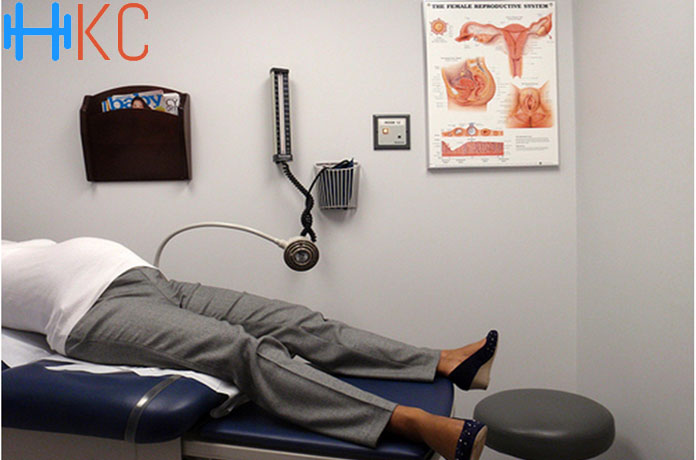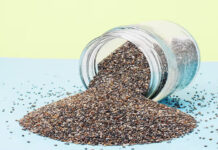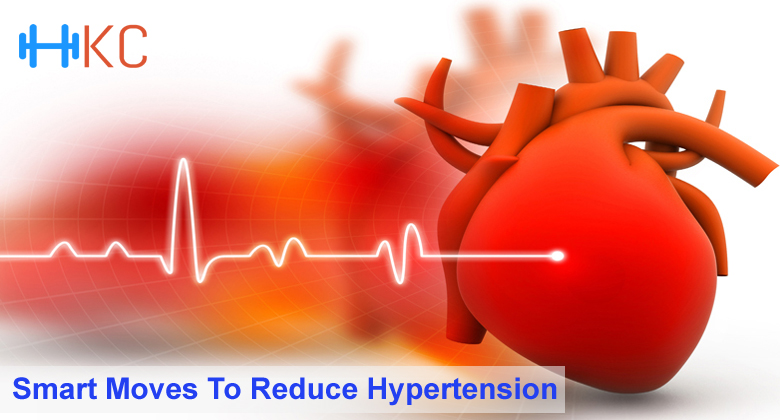For many women, their monthly visit from Aunt Flo is just a temporary nuisance. While annoying, it passes without any major lifestyle changes. However, for others, their periods can be like a seven-day bloodbath from which there seems no escape. If you fall into this latter category, don’t let your heavy flow drag you down. Use the following suggestions to help you cope with heavy periods, so you don’t have to spend a this part of the month in hibernation.
1. Visit Your Doctor
Remember that coping with heavy periods isn’t something you have to do alone. It’s always a good idea to team up with your doctor to see if they can find out what’s causing your heavy bleeding and help you with treatment options. In many cases, extreme flow can be produced by a number of treatable conditions, such as thyroid issues, hormonal imbalances, and pelvic inflammatory disease. Plus, your doctor can check for more serious causes of heavy bleeding, such as endometrial cancer.
2. Take Birth Control
If your flow is heavy because of hormonal imbalances, the estrogen in hormone-based contraceptives can greatly improve your monthly experience. In fact, research shows that birth control can reduce menstrual flow by 60 percent. Birth control works for this problem because the extra estrogen helps your blood clot better, slowing your flow and shortening its duration.
Birth control pills may offer a simple solution for your heavy menstrual flow. Oral contraceptives come in many varieties, so it’s important to talk to your doctor about this option so you can select a pill that’s formulated to help you minimize heavy blood flow. Hormonal IUDs can help reduce blood flow as well. Your physician can help you explore all the options and find the solution that’s best-suited to your lifestyle.
3. Eat Healthy
Eating a well-balanced diet is one of the best ways to better regulate your flow. However, there are a few specific foods that have been shown to reduce how much you bleed. In particular, you’ll want to switch from white bread to whole grain, which contains tons of fiber, iron, and other nutrients while also being low-glycemic. Other foods to include are fruits, vegetables, and fatty fish. Avoid foods that are high-glycemic carbohydrate sources, such as sugary snacks, as these can contribute to hormonal imbalances that increase your flow.
Support healthy iron levels by eating iron-rich foods like oysters, poultry, tofu, lean beef, tofu, beans, and spinach. Cooking in a cast iron pot is another way to add iron to your diet. Moist foods like pasta sauces will absorb iron from the pot as they’re cooking. Make it easier for your body to absorb the iron in these foods by increasing your vitamin C intake. You can get vitamin C from kiwis, strawberries, broccoli, Brussels sprouts, cauliflower, tomatoes, and green or red peppers.
4. Stay Hydrated
It’s crucial that you stay hydrated during your menstrual cycle when you’re experiencing heavy blood flow. That blood loss can cause you to feel dizzy and light-headed. You may notice your heart pounding. Cramps are worse when you’re dehydrated as well. Compensate for the loss of blood that you’re experiencing by drinking lots of water. Carry a water bottle with you at all times so you can sip throughout the day.
You should also make sure you’re getting enough salt when you’re losing blood through a heavy menstrual flow. Vegetable juices are a good choice for this. Bullion broth is another smart solution that will keep you hydrated while replenishing salt.
5. Take the Right Supplements
Studies have shown that vitamin C paired with bioflavonoids can help reduce heavy bleeding. In one particular study, 16 out of 18 women with heavy bleeding who took vitamin C saw an improvement in their monthly flow. Better yet, vitamin C also helps your body better absorb iron. If you are suffering from regular heavy flow, there’s a good chance you have an iron deficiency because of the extreme blood loss. This will cause symptoms like fatigue, dizziness, and headaches.
Many women are unable to get adequate iron from their diet alone. Taking an iron supplement may also help with some of the symptoms of a heavy menstrual flow. You lose between 220 and 250 mg of iron with each pint of blood lost. Finland’s Hyvinkää Hospital studied 236 women who were getting hysterectomies or IUDs, both of which are common treatments for heavy periods. Of these women, 27 percent were anemic and 60 percent had severe iron deficiencies. Even after treating the women’s heavy periods, it took years for some to return to normal iron levels.
Have your physician keep an eye on your iron levels and assist you in choosing the right supplements to support your health with heavy periods. Even if you have resolved your heavy menstrual flow with contraceptives or other treatments, you may need to continue taking these supplements for months or years to get your iron levels back to normal.
6. Switch to a Menstrual Cup
Full disclosure – switching to a menstrual cup won’t lessen your flow. However, it’s a great way to avoid having to change your pad or tampon every hour on the hour. Menstrual cups sit inside the vagina and collect blood right from your uterus. This means they can hold much more blood than the average super tampon or maxi-pad, reducing the time you spend in the bathroom.
7. Take Over-the-Counter Medications
You can reduce your blood loss during your menstrual period by taking nonsteroidal anti-inflammatory drugs (NSAIDs) such as aspirin, Advil, or Motrin. If you suffer from cramping, these medications will help ease the pain and discomfort here as well. Speak to your doctor about the best dose for your symptoms. Depending on the severity of the problem, your physician may also offer you a prescription medication to reduce blood loss.
8. Treat With Heat
Heat won’t reduce blood loss during your period, but it can help with cramps, which are a common side effect of this problem. Apply a heating pad to your abdomen and lower back. If you don’t have a heating pad or don’t want to be reliant on something plugged in to the wall, you can also use a disposable heating patch, hot water bottle, or hot towel.
9. Try Essential Oils
There are several essential oils that work well for menstrual symptoms like PMS and cramps. You can ease some of the complications of a heavy period by adding a few drops of these oils to a carrier oil and massaging your lower abdomen with the blend. Another way to enjoy essential oils during your period is in a hot bath along with a cup of Epson salt.
Clary sage is one of the most popular choices for PMS relief. This oil lowers stress levels and helps your muscles relax. If you’re having trouble sleeping, lavender can help ease cramps and boost relaxation and drowsiness. Use geranium oil to reduce your cramping and bloating while lifting your mood.
These are just a few of the many ways you can make your heavy-flow period a little more manageable. When you visit your doctor, he or she can help you brainstorm more ways to tackle this irksome problem.














